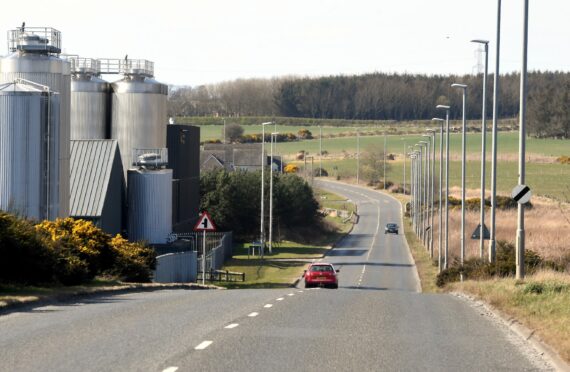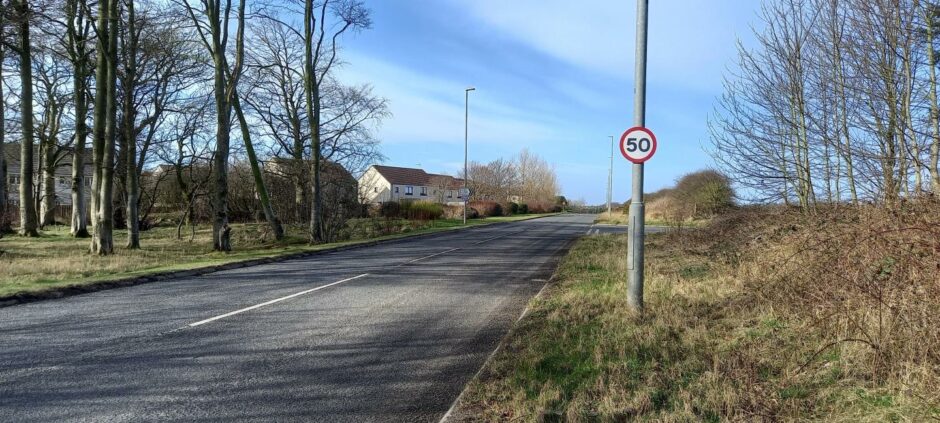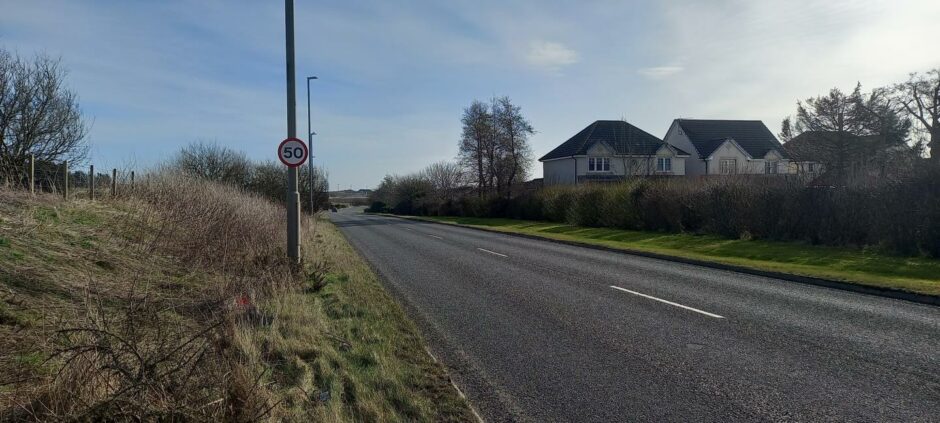Councillors have backed plans to permanently lower the speed limit on an Ellon danger road.
As well as enforcing a 50mph limit on the town’s bypass, some members raised the prospect of further reductions in the future.
The stretch has been a concern for years, with residents growing more and more worried about accidents and speeding.
As a result of their concerns, the limit was reduced to 50mph on a temporary basis in April 2020.
Ellon bypass 50mph limit to become permanent
The council will now start work on making 50mph the new limit on the stretch of the A948 route to Auchnagatt.
And members of the Formartine Area Committee learned yesterday that it could come down again in the future.
It is expected that, when a new cemetery opens along the stretch, there could be cause to review the restrictions.
‘Hearses won’t be going at 50mph’
Ellon councillor Gillian Owen said: “We need to have a look at that perhaps again once the cemetery is about to be opened.
“I can’t see hearses going 50mph anyway and, at the same time, I think we could be actually creating another issue.”
However, she was told that the 50mph would not be changed “unless there was a number of accidents which indicated there was an issue”.
50mph limit on Ellon bypass ‘hugely beneficial’
Councillor Louise McAllister also supported the permanent change.
She said: “I use the bypass all the time and I would say that the traffic speed seems to be calmer [since the limit was lowered].
“Even if people don’t exactly stick to the 50mph, they’re certainly not exceeding 60mph.
“I think it is hugely beneficial and I think absolutely we should keep it in place.”
What happens next?
A consultation process will now be carried out and should no objections be received the 50mph limit will become permanent.
In May 2019 a woman was seriously injured after a crash at the junction with Knockothie Crescent.
Just two months later north-east teacher and mum-of-two Yvonne Lumsden died after her family’s car collided with a trailer.
Another seven crashes were recorded on the road between 2017 and 2021, four of which were caused by drivers either driving too fast for road conditions or speeding.


